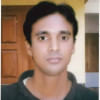Lack of molecular lab hampers cancer treatment

Lack of a molecular laboratory is preventing cancer patients in the country from receiving the best possible treatment, according to experts, as World Cancer Day 2025 is set to be observed tomorrow.
"Molecular testing identifies specific genetic mutations within cancer cells. This information allows doctors to tailor treatment plans with targeted therapies that specifically attack those mutations, increasing effectiveness and minimising side effects," said Professor Sazzad Mohammad Yusuf, a cancer expert and head of the Radiotherapy Ward at Chattogram Medical College Hospital (CMCH).
"At present, there is no molecular laboratory in Chattogram, not even in the country," he said, adding that due to the absence of a molecular lab, Next-Generation Sequencing (NGS) cannot be conducted.
"As a result, many cancer patients go abroad for treatment every year," he said.
NGS is a DNA sequencing technique that analyses a patient's entire genome to detect cancer mutations, he said, adding that it is a key component of precision oncology and is becoming a standard treatment for advanced cancer.
"Quality and accuracy of treatment can be ensured more precisely if a molecular testing facility is established in government hospitals," he said.
However, a significant improvement in the availability of cancer treatment medicines has been observed in Chattogram over the past five years, he said, adding that many medicines that previously had to be imported are now available in the country at a much lower price.
"Our pharmaceutical companies are manufacturing cancer treatment medicines that we used to buy from abroad at a significantly higher price," he said, adding that this change has made cancer treatment much more cost-effective.
Regarding cancer treatment facilities in Chattogram, Dr Sazzad said radiotherapy, brachytherapy, and chemotherapy are available at CMCH and some private hospitals in the city. However, the Isotope and Linear Accelerator of the cobalt-60 teletherapy machine at CMCH is out of order.
"These vital parts of the machine should be repaired immediately for better treatment of patients," he said. Over 25 patients receive treatment at the CMCH Radiotherapy Ward every day, he added.
This year's theme for World Cancer Day is "United by Unique," he said.
SITUATION IN CHATTOGRAM
Salah Uddin (not his real name) was diagnosed with lung cancer last year and was admitted to the Radiotherapy Ward. He said when he started feeling unwell, doctors advised him to seek hospital treatment.
"I have come from Cox's Bazar," he said, adding that there is no cancer treatment facility in his district, so he had to come to Chattogram for treatment.
With the country observing World Cancer Day 2025 on Tuesday, Chattogram faces a growing cancer burden, reflecting global trends.
Despite significant advances in cancer research and treatment, access to and awareness of quality treatment remain major concerns in the region. Among the government hospitals in this region, cancer treatment is available only at CMCH.
According to CMCH sources, a total of 5,658 new cancer patients received treatment at the Radiotherapy Ward's outpatient department last year. Among them, 2,520 patients were female, accounting for over 44 percent of the total.
There has been no significant change in the number of new cancer patients at CMCH over the past five years. In 2019, the number of new cancer patients was recorded at 5,791, and the figure has remained almost the same in subsequent years.
Breast cancer was the most common form among female patients, while lung cancer and head and neck cancer were predominant among male patients.
Contacted, Dr Ali Asgar Chowdhury, associate professor of the Radiotherapy Ward at CMCH, said male patients are more prone to lung and head and neck cancers due to high rates of smoking and tobacco consumption with betel leaves.
Female patients are more likely to develop breast and cervical cancer, he said, adding that a lack of awareness about early screening is the main reason behind these diagnoses."Although screening facilities are available in government hospitals, including CMCH, a lack of awareness among women remains a major barrier to early detection of breast and cervical cancer," he said, adding that the success of treatment largely depends on early detection.

 For all latest news, follow The Daily Star's Google News channel.
For all latest news, follow The Daily Star's Google News channel. 



Comments